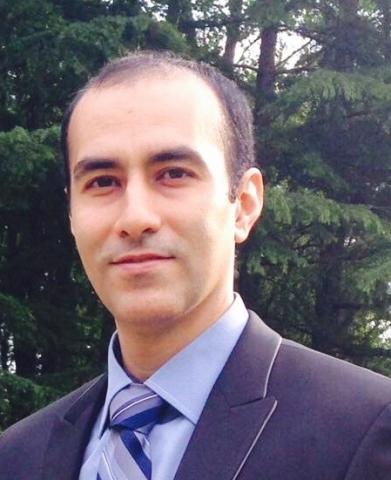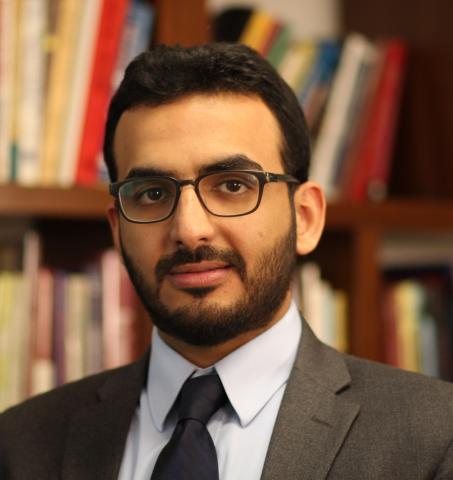John Lee, Afshin Abdi, and Motaz Alfarraj were presented with Outstanding Research Awards from the Center for Signal and Information Processing (CSIP).
John Lee, Afshin Abdi, and Motaz Alfarraj were presented with Outstanding Research Awards from the Center for Signal and Information Processing (CSIP). They received these awards at CSIP’s annual holiday luncheon on December 2, 2019. All three are doctoral students in the Georgia Tech School of Electrical and Computer Engineering (ECE).
Lee defended his thesis this fall, which was the culmination of a very productive and creative four-year stint in CSIP. His advisor is ECE Professor Christopher Rozell. Lee’s research pioneered the development of several new types of generalized tracking methods, made fundamental contributions to numerical optimization methods to support them, and deployed these methods in applications to build new neurotechnologies.
His papers–both with collaborators and those led by him–explore applications in online neuroscience data analysis, including tracking neurons to provide vision to robotic experimentalists, aligning multimodal datasets for training brain machine interfaces, and super-resolution tracking of neural oscillations at short time scales to understand their role in learning and memory. Lee has one patent application, five journal papers either published or under review, five conference papers (including the competitive machine learning/artificial intelligence conferences), and nine conference abstracts. He is currently a senior member of the technical staff at DSO National Laboratories of Singapore
Abdi’s thesis research is focused on distributed machine learning with minimum communication overhead. He is advised by ECE Professor Faramarz Fekri. Abdi investigated three interrelated fundamental research problems, including deep learning with distributed data; deep learning with distributed model; and restructuring deep models for parallel and distributed implementation. His work tackles these fundamental problems using information theory, compressive sensing, and optimization techniques.
Abdi has published over 25 conference and journal papers, and he is the first author on two AAAI Conference on Artificial Intelligence papers and a second author on an Advances in Neural Information Processing Systems (NeurIPS) paper. Abdi plans to graduate in summer 2020 and is interested in faculty positions.
Alfarraj defended his thesis earlier in the fall, which introduced the integration of physics in deep learning frameworks to overcome the shortage of consistently annotated datasets. These frameworks can be used in fields such as subsurface characterization, medical imaging, and geothermal exploration. His advisor is ECE Professor Ghassan AlRegib.
Alfarraj has worked on various research problems including texture images analysis, deep learning and machine learning for visual data characterization, and image processing for subsurface characterization. He has published 16 refereed journal and conference papers in reputable venues such as IEEE Signal Processing Magazine, Interpretation, and Geophysics. Alfarraj will begin work as an assistant professor at King Fahd University of Petroleum and Minerals in Dhahran, Saudi Arabia in spring 2020.
Additional Images


